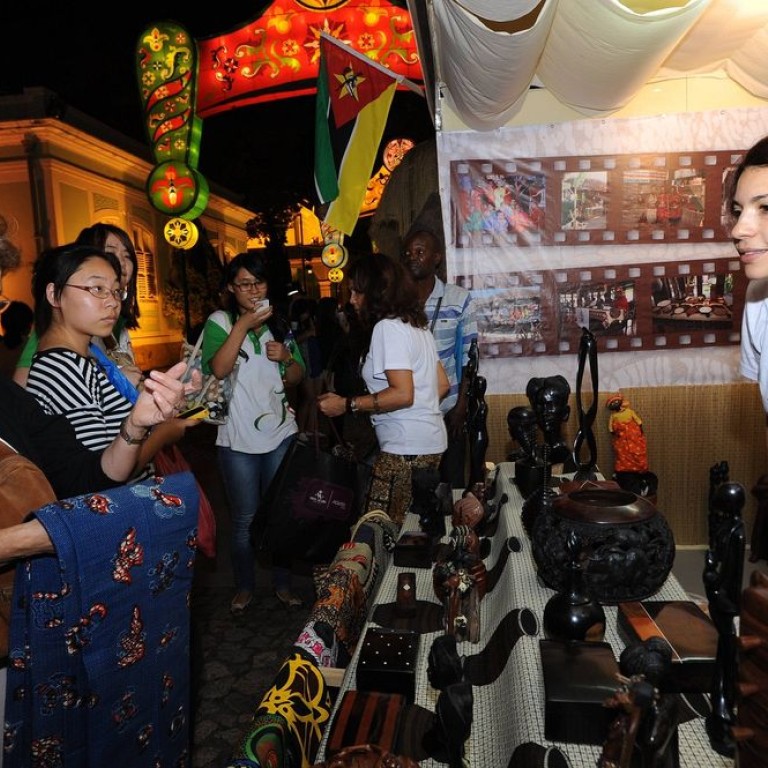
Macau celebrates its historic connections with the annual Lusofonia Festival
The event, now in its 18th year, celebrates the cultures of Portugal’s former colonies around the world as well as that of the local community
Portugal once had a far-flung empire with "overseas provinces" in Africa, Asia and South America. It was the world's first truly global empire, spanning more than five centuries.
While Brazil was considered the jewel in the crown - by far the largest of Portugal's overseas possessions - it was also the first to gain independence. The South American giant split from Portugal on September 7, 1822.
Six years after its explorers discovered a sea route to India, Portugal established three bases in the Indian subcontinent: Goa, Daman (Damao) and Diu. While Portugal started losing control of these territories in the 1950s and ’60s, the country only officially recognised Indian authority following the military coup that led to the fall of Portugal's New State regime in the mid-1970s.
The same coup resulted in the decolonisation of Portuguese-speaking Africa. Angola, Cape Verde, Guinea-Bissau, Mozambique and São Tomé e Príncipe achieved independence shortly thereafter.
Portugal was hoping to grant independence to East Timor as well. Situated within the Indonesian archipelago, the tiny enclave was invaded by the Indonesian army on December 7, 1975, and a disastrous occupation ensued that resulted in the death of between 100,000 and 180,000 soldiers and civilians.
Up to one-third of the population is estimated to have been killed or starved to death during the occupation. The East Timorese voted for independence in a UN-sponsored election in 1999, but independence wasn’t actually achieved until 2002.
Despite the separations, the cultural, economic and political ties between Portugal and its former possessions have remained strong. Many people from Portugal and its old colonies have either settled in Macau or study or do business there.
In recognition of this, the city developed the Lusofonia Festival, an annual celebration of the cultures and gastronomies of these –countries, and the local Macanese community, who are considered “sons of the soil”. It is a popular event, drawing about 25,000 people last year.

According to Macau's Civic and Municipal Affairs Bureau (IACM), the purpose of the festival is threefold. First, it is designed to promote the cultures of the countries and regions where Portuguese is spoken, thereby enhancing contact, mutual influence and exchanges among them.
The second purpose is to pay tribute to the local Portuguese-speaking communities that decided to settle in Macau, helping to build the city and support its development. Finally, the event holds a place on the calendar of major cultural events in Macau, thereby promoting local tourism, urban entertainment, and spaces for recreation and leisure for the enjoyment of entire community.
The first Lusofonia Festival was held in 1998 on Portuguese National Day, which falls on June 10. In Portugal, June is considered to be festival season, with many celebrations held in cities and towns throughout the country. But the weather in Macau during that month is unpredictable - hot and humid, with frequent rainfall. So the city moved Lusofonia to autumn, when the weather is cooler, drier and more likely to cooperate.

The festival is held at Carmo Square, which is home to the Taipa House Museums, a collection of traditional Macanese-style homes which were built in 1921 to house Portuguese high-level civil servants and well-to-do local families. Each one of the houses has been beautifully renovated. Painted in pastel green with white trim and red tile roofs, three house museums, while two are reserved for other uses.
The Macanese House has been decorated in the style typical in the city in the early part of the last century, featuring sturdy dark-wood furniture, works of art and artifacts. The House of the Islands features an exhibition on the history, religious faith and culture of the Portuguese that settled on the islands of Taipa and Coloane, which were occupied by Portugal in 1847 and 1910, respectively.The House of the Regions of Portugal features a display of traditional Portuguese costumes from different parts of the country.
One of the two remaining houses serves as an exhibition gallery, which hosts various temporary exhibitions ranging from photography to paintings, ceramics and sculpture. The other house is used for official receptions and occasionally hosts cultural events and culinary festivals.

During Lusofonia, live entertainment is showcased at an outdoor amphitheatre situated near the houses on the waterfront, with musical and dance performances representing the Portuguese-speaking communities of Macau. At last year's event, local performers included “the Elvis of Macau”, the João Gomes and Ligação Group, the Band of the Portuguese School of Macau, and Tuna Macaense. There were also overseas performers from Brazil, Portugal, Portuguese-speaking Africa, the former Portuguese settlements in India, and East Timor.
Among the highlights of the festival each year are 10 booths representing Macau's Portuguese-speaking communities, featuring food, beverages and handicrafts. And not to be missed are the caipirinhas - a mixture of rum, sugar, and lime juice served over crushed ice - served at the Brazilian booth.
The 18th edition of the Lusofonia Festival will take place from October 23 to 25.

